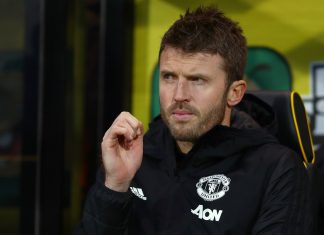Unless success constitutes the hosting of a World Cup and the panel who decide your fate are a bunch of fairly old FIFA delegates, money will never buy success. No one has proven that better than Daniel Levy, who has taken Tottenham into the Champions League and to the point where some are starting to think of the perennial ‘nearly men’ of English football as title contenders.
A report earlier this year into the finances of Premier League clubs found that most of the teams in our league have crippling credit ratings and by rights would be bankrupt in most other walks of life. Seventy percent of teams have had their ratings suspended, with creditors advised to cease trading with those clubs, including Chelsea and Manchester City. Just four sides have even a half decent rating. Unsurprisingly, two of those are Arsenal and Manchester United, with A+, the highest rating. The third is Blackburn and the final one is Tottenham.
Much of Tottenham’s success owes to Levy, the shrewd chairman of ENIC, who bought the club from Sir Alan Sugar. The club have been willing to back their managers with significant funding when necessary, but never unsustainably so. The club may be partial to splashing out on new signings but they are in Europe’s top 20 clubs for turnover, which doesn’t take into account their Champions League run this year, and nor do they sign sponsorship deals with themselves to boost revenue, unlike Manchester City. Chelsea’s large revenues before the Abramovich era are explained by their participation on a semi-regular basis in the Champions League before his arrival.
But in an era of clubs trying to spend, spend and spend more in a vain attempt to buy success quicker and quicker, Tottenham are proof of the stupidity of such a project, showing up richer rivals. Not only have they broken the ‘glass ceiling’ that the top four created, but they did so playing stylish attractive football (Man City take note).
And still they are run on a sound business model. When your manager is Harry Redknapp, who will always insist that just one more player would make his sides complete, that is crucial. The coincidence of the Redknapp wrecking ball that has seen former sides West Ham, Portsmouth and Southampton all enter administration soon after his tenures at these respective teams means that whilst the loveable cockney is a great manager, financial prudence is not his forté.
And whilst Redknapp is pretty good at picking a player at a good price, as the signing of Rafael van der Vaart proved, it was Tottenham’s previous continental structure which laid the ground for much of their success. Damien Comolli, now the sporting director at Liverpool, identified and brought several current stars to the club. Among those were Tom Huddlestone, Luka Modric and Gareth Bale.
Levy is the perfect constraining influence on Redknapp’s trigger happy way with buying and selling players. And his reining in of these instincts have helped Redknapp to discover potential he did not initially see in some of his players, most notably Roman Pavlyuchenko, who Redknapp did not rate at first. Prevented from buying a replacement for the Russian, Redknapp reluctantly used the forward and brought out the best in the former Spartak Moscow player.
What Redknapp is best at more than anything else, is inspiring confidence and belief into his teams. He was the perfect manager for Tottenham at the time he came in, rejuvenating a talented squad at the bottom of the league and restoring them to their rightful position. And a club who for so long under Martin Jol just fell short in the big games are now capable of taking on and beating the very best. Tottenham as a club deserve more credit than they are given for their steady progress and achievements in recent years. It is unfortunate for Levy, Comolli and many of the players that Redknapp hogs the credit for the collective achievements of the side. But the club remains the proof that sound financial management and attractive, positive football are the ingredients for success, not a billionaire owner and a who’s who of football’s most expensive divas.







